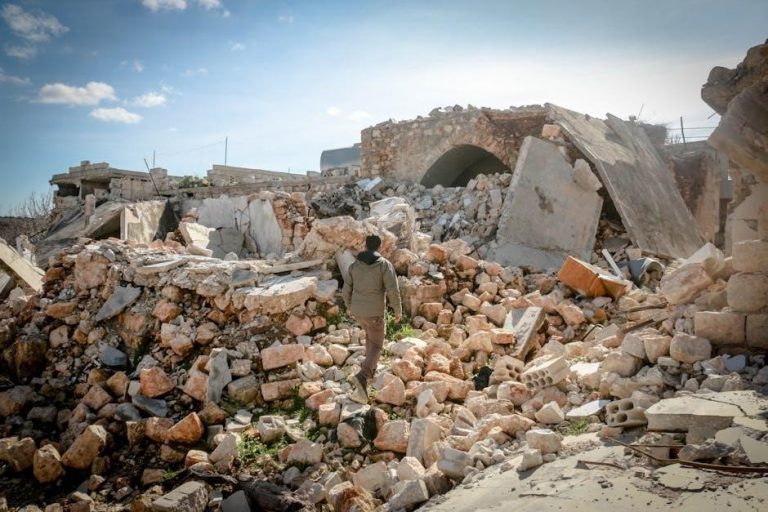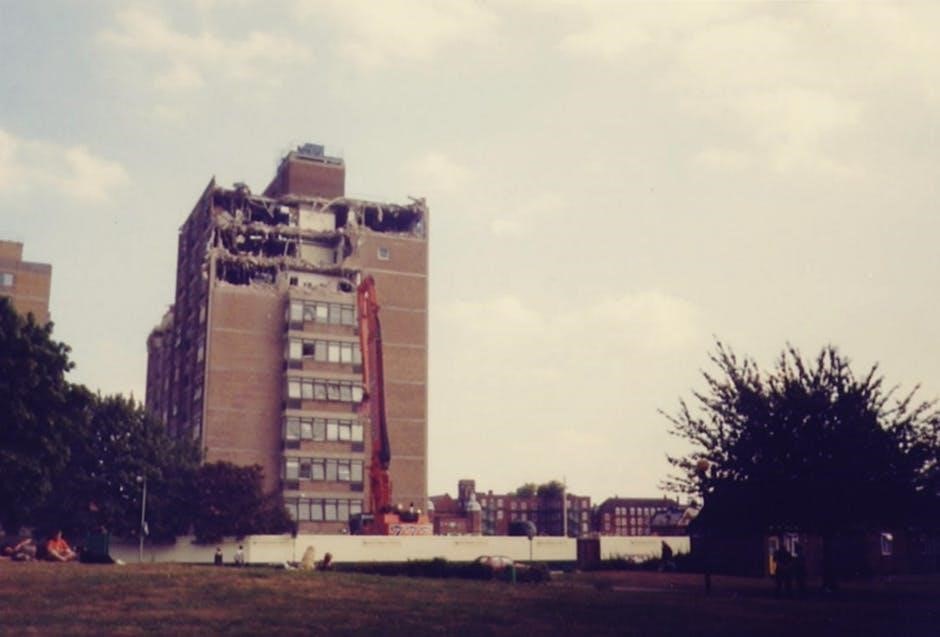
This comprehensive guide provides a roadmap for rebuilding civilization‚ focusing on essential skills‚ historical lessons‚ and modern technology to create a resilient future for humanity.
Overview of the Book: The Ultimate Guide to Rebuilding Civilization
The book serves as a comprehensive guide‚ detailing the mechanisms for rebuilding civilization. It spans 400 pages‚ offering insights into essential survival skills‚ societal structures‚ and the integration of modern technology. Practical advice on making fire‚ finding water‚ and identifying edible plants is included‚ alongside reflections on historical societies; The guide emphasizes the importance of knowledge‚ cooperation‚ and innovation‚ making it a valuable resource for anyone seeking to understand and contribute to civilization rebuilding efforts.
Importance of Essential Living Skills in Civilization Rebuilding
Essential living skills are the cornerstone of rebuilding civilization‚ enabling individuals to meet basic needs and sustain life. These skills‚ such as making fire‚ finding water‚ and identifying edible plants‚ are universal and timeless. They ensure survival in challenging environments‚ fostering resilience and adaptability. By mastering these fundamentals‚ communities can lay the groundwork for stability and progress. The book emphasizes their role in creating a sustainable foundation for civilization‚ highlighting practical strategies to ensure long-term viability and self-reliance.

Foundations of Civilization Rebuilding
Building a strong foundation involves mastering essential skills like resource management and social structures‚ ensuring sustainability and cohesion for long-term civilization growth and stability.
Survival Skills: Making Fire‚ Finding Water‚ and Identifying Edible Plants
Making fire‚ finding water‚ and identifying edible plants are core survival skills essential for rebuilding civilization. These skills ensure basic needs are met‚ enabling individuals to thrive in challenging environments. Fire provides warmth‚ light‚ and a means to cook food‚ while clean water is vital for hydration and health. Identifying edible plants prevents starvation and ensures a sustainable food source. Mastering these skills lays the groundwork for resilience and self-sufficiency‚ crucial for rebuilding and maintaining a stable civilization.
Understanding Society: Lessons from Historical Civilizations
Studying historical civilizations reveals valuable insights into societal structures‚ governance‚ and cultural evolution. By analyzing past societies‚ such as ancient Rome‚ we can learn from their successes and failures‚ adapting these lessons to modern rebuilding efforts. Understanding how historical civilizations managed resources‚ governed populations‚ and maintained cultural identity provides a foundation for creating resilient and equitable societies today. These lessons emphasize the importance of adaptability‚ innovation‚ and collective responsibility in shaping a sustainable and thriving civilization.

Community Building and Cooperation
Building strong communities requires collaboration‚ mutual support‚ and shared goals. Cooperation fosters trust‚ empathy‚ and collective progress‚ laying the foundation for a resilient and harmonious society.
The Role of Cooperation in Rebuilding Society
Cooperation is the cornerstone of societal rebuilding‚ fostering unity and shared responsibility. It ensures resource distribution‚ collective problem-solving‚ and mutual support‚ which are vital for overcoming challenges and achieving long-term stability. Through cooperation‚ individuals contribute to the greater good‚ building trust and resilience. This collaborative spirit not only strengthens communities but also provides a foundation for sustainable growth and progress‚ ensuring that society can adapt and thrive in the face of adversity. Cooperation is essential for creating a harmonious and prosperous future.
Communication Strategies for Building Trust
Effective communication is vital for fostering trust within a rebuilding society. Transparent dialogue‚ active listening‚ and empathy help bridge divides and strengthen relationships. Clear messaging ensures alignment of goals and values‚ reducing misunderstandings. Encouraging open forums for sharing ideas promotes inclusivity and collaboration. Trust‚ once established‚ becomes the backbone of a cohesive community‚ enabling collective progress and resilience. These strategies not only enhance interpersonal connections but also lay the groundwork for a united and equitable society. Communication is the lifeline of trust in rebuilding efforts.
Technology and Innovation
Technology serves as the cornerstone for rebuilding‚ offering tools for reconstruction and sustainable practices‚ while innovation drives progress and adaptability in creating a resilient future society.
Leveraging Modern Information and Technology for Reconstruction
Leveraging Modern Information and Technology for Reconstruction
Modern information and technology play a pivotal role in rebuilding civilization by providing tools for sustainable development‚ efficient resource management‚ and innovative solutions. Advances in renewable energy‚ artificial intelligence‚ and communication technologies enable societies to reconstruct with resilience. These tools enhance infrastructure‚ healthcare‚ and education‚ ensuring a stronger foundation for future generations. By integrating cutting-edge technology‚ civilizations can address challenges like environmental sustainability and resource scarcity effectively‚ fostering growth and stability in a rapidly changing world. Ethical use of technology ensures equitable progress for all.
Practical Applications of Technology in Daily Life
Technology offers invaluable tools for daily life in rebuilding civilization‚ from renewable energy systems to advanced water purification methods. Innovations like smart agriculture and automated farming enhance food production efficiency. Communication devices and software foster collaboration and information sharing‚ crucial for community cohesion. Medical technologies improve healthcare access and disease prevention. These practical applications ensure sustainability‚ safety‚ and progress‚ making technology an indispensable ally in creating a resilient and thriving society. They bridge the gap between modern advancements and essential survival needs‚ ensuring a balanced approach to rebuilding.

Governance and Leadership
Effective governance and strong leadership are crucial for stability‚ providing clear direction and fostering cooperation within a rebuilding society.
Establishing Governance Structures for Stability
Creating robust governance structures is vital for long-term stability. These frameworks ensure decision-making processes are fair‚ transparent‚ and inclusive‚ fostering trust among community members. They also provide mechanisms for conflict resolution and accountability‚ which are essential for maintaining order and unity. By implementing clear roles and responsibilities‚ governance structures empower leaders to guide communities effectively‚ balancing individual freedoms with collective well-being. This foundation is critical for rebuilding and sustaining civilization in challenging environments. Effective governance structures also adapt to evolving needs‚ ensuring resilience and continuity.
Leadership Skills Necessary for Civilization Rebuilding
Effective leadership is the cornerstone of civilization rebuilding. Visionary leaders must inspire and unite communities‚ fostering collaboration and resilience. Key skills include strategic thinking‚ problem-solving‚ and empathy. Leaders should communicate clearly‚ building trust and guiding groups through challenges; They must also embrace adaptability‚ responding to changing circumstances while maintaining a long-term vision. Empowering others and prioritizing collective well-being ensures sustainable progress. Strong leadership not only navigates crises but also cultivates a culture of innovation and shared responsibility‚ essential for rebuilding and thriving in a new era. Visionary leaders are the architects of a resilient future.

Educational and Cultural Revival
Educational and cultural revival is crucial for rebuilding civilization‚ ensuring the preservation of knowledge‚ traditions‚ and values that form the identity and progress of a society.
Reviving Knowledge: Education as a Cornerstone of Civilization
Education is the cornerstone of civilization‚ providing the foundation for innovation‚ critical thinking‚ and societal progress. The guide emphasizes the importance of reviving and preserving knowledge through structured learning systems‚ ensuring that future generations can build upon the achievements of the past. By prioritizing education‚ communities can foster intellectual growth‚ adapt to challenges‚ and maintain cultural continuity. This section explores practical strategies for reestablishing educational frameworks‚ highlighting the role of teachers‚ accessible resources‚ and community engagement in nurturing a knowledgeable and resilient society.
Cultural Preservation and Its Role in Rebuilding
Cultural preservation is vital for maintaining identity and continuity in rebuilding civilization. It involves safeguarding traditions‚ languages‚ arts‚ and historical artifacts that define a society. By honoring cultural heritage‚ communities can reconnect with their roots‚ fostering unity and resilience. This section explores methods to preserve cultural legacy‚ such as documentation‚ education‚ and community engagement‚ ensuring that the essence of civilization endures for future generations. Cultural preservation not only enriches society but also serves as a foundation for rebuilding with purpose and meaning.
Economic Systems and Sustainability
Economic systems must align with sustainability to ensure resource management and stable growth‚ balancing human needs with environmental health for long-term civilization survival and prosperity.
Building a Sustainable Economy from the Ground Up
Building a sustainable economy requires a foundation of resource management‚ equitable distribution‚ and environmental stewardship. Integrating modern technology‚ such as renewable energy and eco-friendly practices‚ ensures long-term viability. By prioritizing local production‚ reducing waste‚ and fostering innovation‚ communities can create resilient economic systems. Balancing human needs with environmental health is crucial for sustained growth and prosperity‚ ensuring that the economy serves both current and future generations without depleting natural resources.
Environmental Considerations for Long-Term Sustainability
Environmental sustainability is the cornerstone of a thriving civilization. Prioritizing renewable energy‚ sustainable agriculture‚ and eco-friendly practices ensures resource conservation. Reducing waste and promoting biodiversity are critical for maintaining ecological balance. By integrating nature-friendly technologies and fostering a culture of environmental stewardship‚ communities can mitigate climate challenges. Protecting natural resources ensures a habitable planet for future generations‚ making environmental considerations indispensable for long-term survival and prosperity.
Mental and Physical Health
Mental and physical health are vital for rebuilding civilization. Prioritizing nutrition‚ exercise‚ and stress management ensures resilience and well-being‚ fostering a strong foundation for societal recovery.
Importance of Health in Rebuilding Civilization
Health is a foundational pillar of civilization rebuilding‚ ensuring individuals and communities can thrive. Physical well-being enables productivity and resilience‚ while mental health fosters social cohesion and decision-making. Neglecting health leads to decreased productivity‚ societal instability‚ and increased mortality rates. Prioritizing healthcare infrastructure‚ nutrition‚ and disease prevention is essential for long-term sustainability. A healthy population is better equipped to adapt‚ innovate‚ and rebuild‚ making health a critical investment in the future of civilization.
Practical Health Strategies for Individuals and Communities
Effective health strategies include establishing clean water sources‚ promoting balanced nutrition‚ and implementing waste management systems. Communities should organize regular health screenings and training on first aid. Individuals can adopt preventive measures like maintaining hygiene and staying physically active. Building local healthcare networks ensures access to medical care‚ while fostering mental well-being through community support programs strengthens resilience. These practical approaches create a robust health framework‚ enabling individuals and communities to sustain themselves during and after rebuilding efforts.
Rebuilding civilization demands resilience‚ innovation‚ and collective effort‚ offering hope for a brighter future rooted in historical wisdom and modern advancements.
Summarizing the Key Elements of Rebuilding Civilization
Rebuilding civilization requires mastering essential survival skills‚ fostering cooperation‚ and leveraging technology. Key elements include sustainable resource management‚ strong governance‚ and education to ensure resilience and progress.
Looking Ahead: The Future of Civilization Rebuilding
The future of civilization rebuilding lies in innovation‚ sustainability‚ and collective effort. By integrating modern technology with timeless skills‚ societies can adapt to challenges and thrive. Embracing education‚ cooperation‚ and environmental stewardship will pave the way for resilient‚ equitable communities. The journey requires visionary leadership and a commitment to learning from the past while forging a brighter‚ inclusive future for all humanity.
